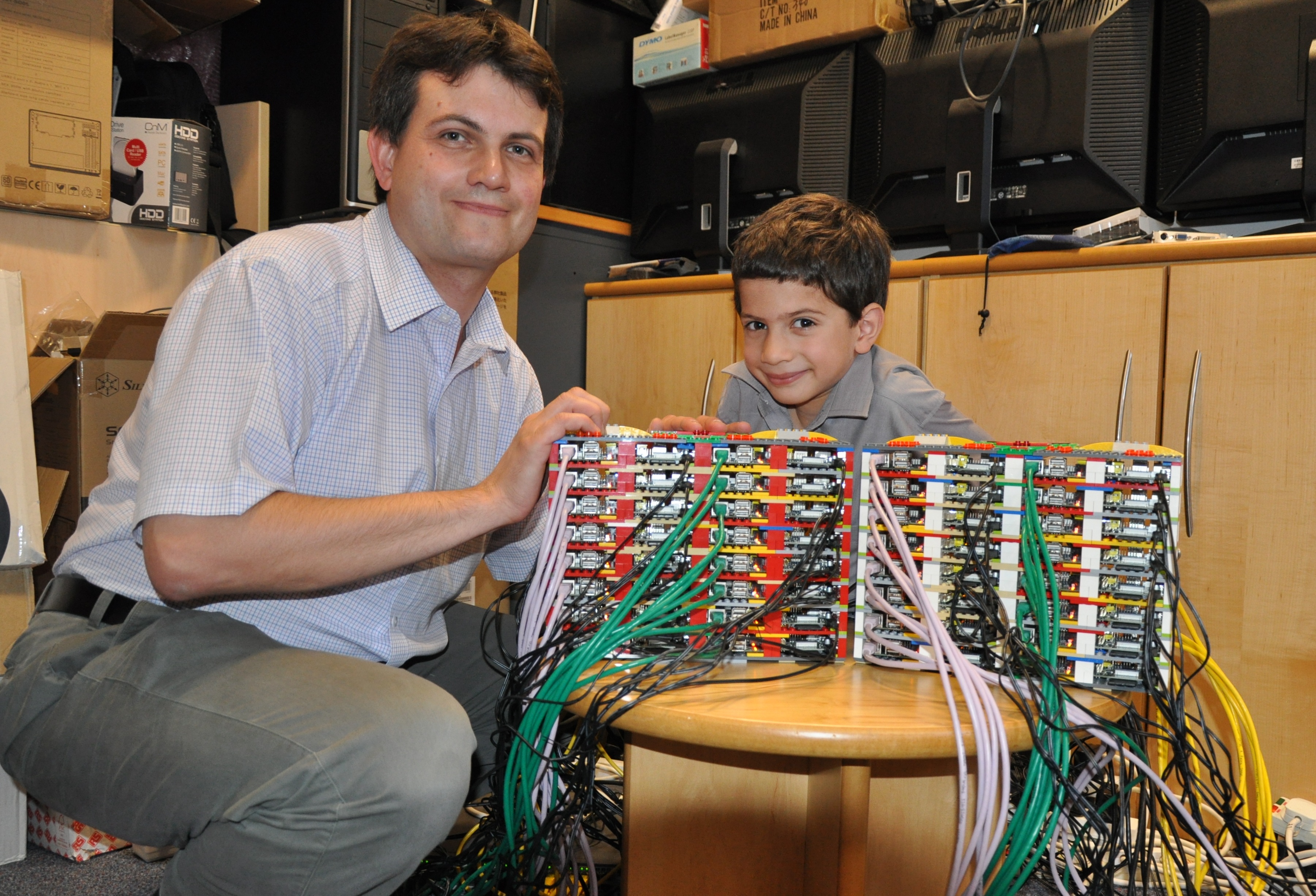
There is also a recent interview with XKCD creator, Randall Munroe, in The Atlantic, which is worth a read.
h/t WEIT.
A miscellany of musings from a science geek, would-be author and occasional creator/supporter of open-source bioinformatics software. Stuff I do, stuff I like... Because the Internet has a better memory than I do.

 For the past couple of years, I have been using this image of a polar bear riding a small iceberg to illustrate climate change in the talk I give to a local(ish) school about studying biological sciences at University - it's just one of the important areas to which biological sciences graduates can contribute. Sadly, according to a Guardian article earlier this week, it is an image that might go out of date sooner than I thought.
For the past couple of years, I have been using this image of a polar bear riding a small iceberg to illustrate climate change in the talk I give to a local(ish) school about studying biological sciences at University - it's just one of the important areas to which biological sciences graduates can contribute. Sadly, according to a Guardian article earlier this week, it is an image that might go out of date sooner than I thought.  The Google Maps Street View Collections are pretty cool (and just plain pretty!) and well worth an explore whenever you have a few moments to kill. (Armchair tourism at its best.) The new Ocean Collection is particularly impressive because you can wander around underwater! As reported in the Guardian Science Section "Google Maps' virtual diving brings the Great Barrier Reef into view":
The Google Maps Street View Collections are pretty cool (and just plain pretty!) and well worth an explore whenever you have a few moments to kill. (Armchair tourism at its best.) The new Ocean Collection is particularly impressive because you can wander around underwater! As reported in the Guardian Science Section "Google Maps' virtual diving brings the Great Barrier Reef into view":Millions of people will be able to take a virtual dive on the Great Barrier Reef via Google Maps on Wednesday as part of a pioneering underwater scientific expedition.I like!
The Catlin Seaview Survey will allow internet users to share the discoveries of scientists who are using new technology to study the composition and health of the Great Barrier Reef.
 This Sri Lankan bovid "adorned with frogs" is just one of the 50 photos selected by Alan Taylor for The Atlantic from entries for the National Geographic Photo Contest 2012:
This Sri Lankan bovid "adorned with frogs" is just one of the 50 photos selected by Alan Taylor for The Atlantic from entries for the National Geographic Photo Contest 2012:"Once again, National Geographic is holding its annual photo contest, with the deadline for submissions coming up on November 30. Beginning on September 1, the society started gathering and presenting galleries of submissions, encouraging readers to vote for them as well. National Geographic was kind enough to let me choose among its entries from 2012 for display here on In Focus. Gathered below are 50 images from the three categories of People, Places, and Nature, with captions written by the individual photographers."Definitely worth a look!
 When I bought my MacBook and received an iTunes voucher with it, I am not ashamed to say that the first thing I bought with it was the most recent offering from that most excellent of British rockers, Slash. I've previously endorsed Ain't Life Grand from when he was part of Slash's Snakepit and, I must admit, I am a general fan of his. Not everything that came out of the Snakepit, or Velvet Revolver (or Guns 'n' Roses for that matter) is fantastic but every album I own has some gems on it.
When I bought my MacBook and received an iTunes voucher with it, I am not ashamed to say that the first thing I bought with it was the most recent offering from that most excellent of British rockers, Slash. I've previously endorsed Ain't Life Grand from when he was part of Slash's Snakepit and, I must admit, I am a general fan of his. Not everything that came out of the Snakepit, or Velvet Revolver (or Guns 'n' Roses for that matter) is fantastic but every album I own has some gems on it.
It’s a capable little PC which can be used for many of the things that your desktop PC does, like spreadsheets, word-processing and games. It also plays high-definition video. We want to see it being used by kids all over the world to learn programming.Well, Prof Simon Cox (and colleagues) of the University of Southampton decided to go one better and used a bunch of them to teach his kid how to build a supercomputer! You can read about it on the Computational Modelling Group website.

“The first test we ran – well obviously we calculated Pi on the Raspberry Pi using MPI, which is a well-known first test for any new supercomputer.”I suspect it can do a bit more than that: the 64 processor system has 1Tb of memory! Not bad for £2500 (plus switches and, possibly, lego).

 After yesterday's post about an interview with Richard Dawkins, author of two of my favourite books - The Selfish Gene and The God Delusion - it seemed appropriate to post today about an interview with the author of another of my
After yesterday's post about an interview with Richard Dawkins, author of two of my favourite books - The Selfish Gene and The God Delusion - it seemed appropriate to post today about an interview with the author of another of my "bad science", dealing with critics, the importance of randomised trials, whether God exists and Twitter.I particularly liked Ben's description of himself as an "apatheist". Due to my background, I have quite an interest in religion and think quite a lot about my atheism (although I don't quite consider myself as a "New Atheist") but I think it is always useful (for strident atheists and religious types alike) to remember that there are people out there who really don't care and don't consider it to be that important.
 Richard Dawkins is one of my personal heroes. Although I do not always agree with everything he says, I usually agree with most of it and he has been a source of inspiration at many points in my life. Reading his classic book on gene-centric evolution, The Selfish Gene, was like having a light switched on. I was fascinated in evolution and genetics before then - I was in the first year of a degree in Genetics at the time - but suddenly it all just made sense. It's still a book I recommend.
Richard Dawkins is one of my personal heroes. Although I do not always agree with everything he says, I usually agree with most of it and he has been a source of inspiration at many points in my life. Reading his classic book on gene-centric evolution, The Selfish Gene, was like having a light switched on. I was fascinated in evolution and genetics before then - I was in the first year of a degree in Genetics at the time - but suddenly it all just made sense. It's still a book I recommend. A massive ENCODE publication release was made yesterday, including 30 papers, an iPad App (downloaded and looking good) and a Virtual Machine full of data. I'm not going to give my opinions on the findings here because, frankly, there's too much to digest. Instead, I recommend reading Ed Yong's summary and the thoughts of Ewan Birney. [Image pinched from Ed Yong.]
A massive ENCODE publication release was made yesterday, including 30 papers, an iPad App (downloaded and looking good) and a Virtual Machine full of data. I'm not going to give my opinions on the findings here because, frankly, there's too much to digest. Instead, I recommend reading Ed Yong's summary and the thoughts of Ewan Birney. [Image pinched from Ed Yong.] If, whilst watching the Equestrian events at Greenwich Park, you wonder how Greenwich got to be home to the Prime Meridian Line - and thereby determine both world time and world longitude - you could do much worse than Episode 91 of A History of the World in 100 Objects, which features the ship's chronometer from HMS Beagle.
If, whilst watching the Equestrian events at Greenwich Park, you wonder how Greenwich got to be home to the Prime Meridian Line - and thereby determine both world time and world longitude - you could do much worse than Episode 91 of A History of the World in 100 Objects, which features the ship's chronometer from HMS Beagle.  I'm ashamed to say that I was still stuck in cynicism when the Olympic torch was going round the country, so I didn't really pay it much attention. Looking back, I am not really sure why this was. I suspect that it was a combination of not really enjoying the last two Olympics that much and the standard negative press coverage of everything that went wrong in the build-up without really stressing all the good bits. (I wish the media would cheer up sometimes!)
I'm ashamed to say that I was still stuck in cynicism when the Olympic torch was going round the country, so I didn't really pay it much attention. Looking back, I am not really sure why this was. I suspect that it was a combination of not really enjoying the last two Olympics that much and the standard negative press coverage of everything that went wrong in the build-up without really stressing all the good bits. (I wish the media would cheer up sometimes!) By the time David Beckham arrived at the Olympic park with the flame and passed it on to Olympic legend, Sir Steve Redgrave, however, I was well and truly on board. Literally passing the torch to nominated youths as part of the "Inspire a Generation" theme was a really nice touch, I thought.
By the time David Beckham arrived at the Olympic park with the flame and passed it on to Olympic legend, Sir Steve Redgrave, however, I was well and truly on board. Literally passing the torch to nominated youths as part of the "Inspire a Generation" theme was a really nice touch, I thought.